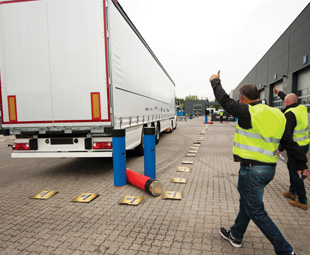Dodgy drivers and foul officials

Johannesburg’s new mayor, Herman Mashaba, is clamping down on corruption. What can we do to improve our own game?
In the last issue, I discussed some suggestions made by Rory Schulz, marketing director at UD Trucks, who said that there was much to be done to bring South African economic growth back up to speed with the rest of the continent. Furthermore, he made a point that the local transport industry is an important catalyst in this, and there is much the industry as a whole can do to aid the process.
Schulz noted the importance of good drivers, who he described as “brand ambassadors and multitaskers”. Any good transport operator will know that this is true. Highly-skilled, professional, loyal truck drivers are an asset to a transport company when behind the wheel and in the customer’s yard.
It’s sad, then, that so many truck drivers – and so many unscrupulous trucking companies – acquire their licences and registrations through questionable means. This fact has been highlighted by the recent suspension and arrest of traffic and licensing department officials in Johannesburg; for allowing motorists to illegally obtain drivers licences, licence discs, and registrations for their vehicles. This has cost the City of Johannesburg an estimated R14,7 million.
That was the result of the corrupt actions of seven officials – hardly the full picture of the rot. The municipality’s investigation further estimated that fraudulent transactions to the value of R155 million were made nationally between January 2008 and February 2016.
I have no breakdown of how many of these transactions apply to truck drivers or operators, but it’s fair to assume the proportion is not insignificant.
What can operators do to ensure that they and the drivers they hire do things by the book? Arnoux Mare, MD of Innovation Staffing Solutions – which provides a turnkey outsource solution for logistics firms, and currently employs more than 5 500 full-time drivers – suggests that no single approach can rid South African roads of incompetent or unlicensed drivers.
He notes that there are, however, solutions to reducing the number of accidents involving commercial vehicles. “It requires a combination of regular driver evaluation and corrective training, fleet technology monitoring systems, and close management of driver schedules to prevent fatigue and negligence,” Mare says.
Mare suggests that thorough background-checks are undertaken when recruiting drivers and that driver competency is evaluated and weaknesses addressed through proper training. He also suggests that operators need to be cognisant of how they treat their drivers.
“Our experience is that many logistics firms struggle to fill their quota of drivers, which often forces managers to demand longer working hours from existing drivers, resulting in fatigue. It also means drivers cannot be taken off their shift for necessary refresher training,” he explains.
Mare has made a call to all the major role players, such as the Department of Transport, organised labour, logistics and insurance companies and the drivers, themselves, to commit to a strategy that will improve the conditions for everyone.
It seems that the City of Johannesburg is leading the way in this regard, and that responsible members of the trucking industry – such as Schulz and Mare – are doing what they can to motivate the process. Hopefully there’s still a lot more to come.
Published by
Focus on Transport
focusmagsa




